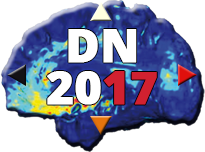

Our main speakers this year cover an exciting array of topics throughout the various sessions in our programme. Click on the images below to learn more.
 I have been carrying out basic research on sleep and circadian rhythms since 2001. My graduate work in Erik Herzog’s lab at Washington University defined intercellular and intracellular mechanisms coordinating daily activity rhythms in the mammalian circadian pacemaker. For this body of work, I was awarded the Donald B. Lindsley Prize in Behavioral Neuroscience from the Grass Foundation and Society For Neuroscience in 2007. I subsequently worked as a postdoctoral fellow in Marcos Frank’s lab at the University of Pennsylvania, studying the mechanisms mediating sleep-dependent plasticity in the developing brain. My laboratory at the University of Michigan is funded by the NIH, the Human Frontiers Science Program, the Alfred P. Sloan Foundation, and the Brain and Behavioral Research Foundation. Here we are currently working to understand how network activity patterns in the sleeping brain contribute to sensory plasticity and memory consolidation, using a combination of electrophysiology, biochemistry, and pharmaco- and optogenetics.
I have been carrying out basic research on sleep and circadian rhythms since 2001. My graduate work in Erik Herzog’s lab at Washington University defined intercellular and intracellular mechanisms coordinating daily activity rhythms in the mammalian circadian pacemaker. For this body of work, I was awarded the Donald B. Lindsley Prize in Behavioral Neuroscience from the Grass Foundation and Society For Neuroscience in 2007. I subsequently worked as a postdoctoral fellow in Marcos Frank’s lab at the University of Pennsylvania, studying the mechanisms mediating sleep-dependent plasticity in the developing brain. My laboratory at the University of Michigan is funded by the NIH, the Human Frontiers Science Program, the Alfred P. Sloan Foundation, and the Brain and Behavioral Research Foundation. Here we are currently working to understand how network activity patterns in the sleeping brain contribute to sensory plasticity and memory consolidation, using a combination of electrophysiology, biochemistry, and pharmaco- and optogenetics.
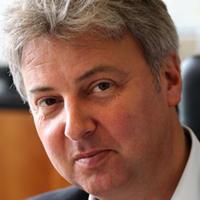 Dr Brüstle has a key interest in the mechanisms underlying stem cell differentiation and in exploiting them for the controlled generation of defined classes of neural stem cells from human pluripotent stem cells. Combining this expertise with cell reprogramming and direct transcription factor-based cell fate conversion he generates human neurons and glia from patient skin fibroblasts and employs them for deciphering driver mechanisms involved in the molecular and cellular pathogenesis of neurodegenerative diseases. Examples of ongoing studies include human ES and iPS cell-based models of Alzheimer’s disease and polyglutamine disorders. In collaboration with LIFE & BRAIN GmbH he extends these approaches towards industrialized solutions for stem cell-based drug development.
Dr Brüstle has a key interest in the mechanisms underlying stem cell differentiation and in exploiting them for the controlled generation of defined classes of neural stem cells from human pluripotent stem cells. Combining this expertise with cell reprogramming and direct transcription factor-based cell fate conversion he generates human neurons and glia from patient skin fibroblasts and employs them for deciphering driver mechanisms involved in the molecular and cellular pathogenesis of neurodegenerative diseases. Examples of ongoing studies include human ES and iPS cell-based models of Alzheimer’s disease and polyglutamine disorders. In collaboration with LIFE & BRAIN GmbH he extends these approaches towards industrialized solutions for stem cell-based drug development.
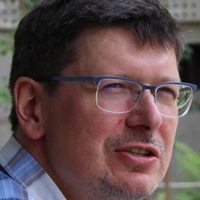 Luc Buée is a French scientist (CNRS Research Director), Director of the Jean-Pierre Aubert Research Centre and Head of the Inserm laboratory « Alzheimer & Tauopathies » at the University of Lille, France. His group is also part of the laboratory of Excellence (LabEx) DISTALZ and the Centre of Excellence in Neurodegenerative disorders (LiCEND). He has worked on Alzheimer disease for more than 25 years. He started his work on the role of proteoglycans in Alzheimer disease with a PhD training at Mount Sinai Medical Center, NYC. He was then involved in the initial characterization of tau aggregates among neurodegenerative disorders. He has then developed experimental models to better understand the role of post-translational modifications in tau aggregation and tau secretion. His group is currently working on the pathophysiological consequences of neurofibrillary degeneration and their links to the amyloid pathology in Alzheimer disease. His group was/is also involved in different international consortia. Luc Buée is also involved in different scientific advisory boards and operating committees. He is also the representative researcher elected by academics at the French Foundation Plan Alzheimer.
Luc Buée is a French scientist (CNRS Research Director), Director of the Jean-Pierre Aubert Research Centre and Head of the Inserm laboratory « Alzheimer & Tauopathies » at the University of Lille, France. His group is also part of the laboratory of Excellence (LabEx) DISTALZ and the Centre of Excellence in Neurodegenerative disorders (LiCEND). He has worked on Alzheimer disease for more than 25 years. He started his work on the role of proteoglycans in Alzheimer disease with a PhD training at Mount Sinai Medical Center, NYC. He was then involved in the initial characterization of tau aggregates among neurodegenerative disorders. He has then developed experimental models to better understand the role of post-translational modifications in tau aggregation and tau secretion. His group is currently working on the pathophysiological consequences of neurofibrillary degeneration and their links to the amyloid pathology in Alzheimer disease. His group was/is also involved in different international consortia. Luc Buée is also involved in different scientific advisory boards and operating committees. He is also the representative researcher elected by academics at the French Foundation Plan Alzheimer.
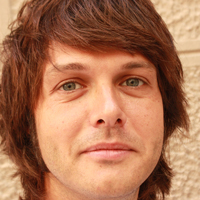 Marc Claret (1974) received a doctorate in Biochemistry by the University of Barcelona in 2003. Afterwards he joined Prof. Bart Vanhaesebroeck laboratory (Ludwig Institute for Cancer Research, London, UK) where he was involved in the metabolic characterization of new state-of-the-art transgenic models of the PI3K pathway. Later, became member of Prof. Dominic J Withers’ Centre for Diabetes and Endocrinology at the University College London. In this lab he focused his research interests in the hypothalamic circuits that regulate systemic energy balance and metabolism. In 2010 he was awarded with a “Miguel Servet Contract” from the Spanish government and based his research at IDIBAPS in Barcelona. Since then he is the Group Leader of the “Neuronal Control of Metabolism Laboratory”. His laboratory aims to understand the cellular, molecular and circuit-level mechanisms that control appetite, energy expenditure and metabolism.
Marc Claret (1974) received a doctorate in Biochemistry by the University of Barcelona in 2003. Afterwards he joined Prof. Bart Vanhaesebroeck laboratory (Ludwig Institute for Cancer Research, London, UK) where he was involved in the metabolic characterization of new state-of-the-art transgenic models of the PI3K pathway. Later, became member of Prof. Dominic J Withers’ Centre for Diabetes and Endocrinology at the University College London. In this lab he focused his research interests in the hypothalamic circuits that regulate systemic energy balance and metabolism. In 2010 he was awarded with a “Miguel Servet Contract” from the Spanish government and based his research at IDIBAPS in Barcelona. Since then he is the Group Leader of the “Neuronal Control of Metabolism Laboratory”. His laboratory aims to understand the cellular, molecular and circuit-level mechanisms that control appetite, energy expenditure and metabolism.
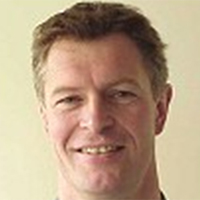 Sietse F. de Boer studied Biology at the University of Groningen and obtained his Ph.D. degree (1990) in Psychophysiology & Pharmacology at the University of Utrecht, The Netherlands. Subsequently he became a postdoctoral research fellow at Hahnemann University Hospital, Philadelphia, USA. Since 1992 he holds a staff position (currently at the associate professor level) at the Behavioral Neuroscience cluster of the Groningen Institute for Evolutionary Life Sciences (GELIFES), University of Groningen, The Netherlands.
Sietse F. de Boer studied Biology at the University of Groningen and obtained his Ph.D. degree (1990) in Psychophysiology & Pharmacology at the University of Utrecht, The Netherlands. Subsequently he became a postdoctoral research fellow at Hahnemann University Hospital, Philadelphia, USA. Since 1992 he holds a staff position (currently at the associate professor level) at the Behavioral Neuroscience cluster of the Groningen Institute for Evolutionary Life Sciences (GELIFES), University of Groningen, The Netherlands.
His main focus of research, which generally reflects a passion for understanding human brain & behavior, is to unravel the neurocircuitry of specific brain areas and its molecular signals underlying the formation of social hierarchies and the of aggressive and defensive behavior. Disruptions of these “fight & flight” neural circuits are known to underlie neuropsychiatric disorders like depression, anxiety and violence that take a tremendous toll on our societies. Currently, various molecular components that control the dynamic signaling properties of the brain monoamine neurotransmitters serotonin and dopamine as well as of the brain neuropeptides oxytocin and vasopressin are under investigation. Special emphasis is given to the variations in the structure and function of these neural mechanisms that gives rise to the important individual differences that exist in feral rodent species when coping with social conflict and adversity. For translational psychopharmacology purposes, an active research line is pursued to assess the behavioral, autonomic physiological and neuroendocrine properties of several novel compounds from industry. He has (co)-authored over 150 scientific peer-reviewed articles and book-chapters with a total citation score of 10750 and h-index of 55.
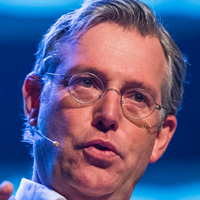 Damiaan Denys is Professor at the University of Amsterdam (UVA), Chair of the department of Psychiatry at the Academic medical Center in Amsterdam (AMC), and associated with The Netherlands Institute for Neuroscience (NIN).
Damiaan Denys is Professor at the University of Amsterdam (UVA), Chair of the department of Psychiatry at the Academic medical Center in Amsterdam (AMC), and associated with The Netherlands Institute for Neuroscience (NIN).
Denys conducts research into anxiety, impulsive and compulsive disorders. His scientific research is characterized by a translational approach and makes use of clinical psychiatry, philosophy and neuroscience. A particular focus of his research is the development of deep brain stimulation (DBS) for psychiatric disorders.
Denys studied Philosophy and Medicine at the KU Leuven (Belgium) and obtained his
doctorate cum laude from Utrecht University (Netherlands) with a dissertation entitled "On certainty: studies in obsessive compulsive disorder".
 Sonja Entringer is a tenured Professor of Medical Psychology at the Charité Universitätsmedizin, Berlin and an Adjunct Associate Professor at the Development, Health and Disease Research Program of the University of California, Irvine. Dr. Entringer received her Ph.D. in Psychobiology from the University of Trier in 2006. Her research examines the interface between biological, social and behavioral processes in human pregnancy, with an emphasis on outcomes related to fetal development, birth, and subsequent newborn, infant and child development and health. In particular, her work focuses on the interplay between maternal-placental-fetal neuroendocrine, immune, metabolic and genetic/epigenetic processes as putative mechanisms that mediate the effects of the maternal environment (and particularly prenatal stress) on early human development. Dr. Entringer has published over 70 peer-reviewed scientific papers and lectured extensively at international scientific meetings and universities. Her research program has been continuously supported by several research grants from the U.S. National Institutes of Health, the European Research Council, the German Research Foundation and other agencies. Dr. Entringer is the recipient of several honors and awards, including recognition for her early-career contributions from the International Society of Psychoneuroendocrinology.
Sonja Entringer is a tenured Professor of Medical Psychology at the Charité Universitätsmedizin, Berlin and an Adjunct Associate Professor at the Development, Health and Disease Research Program of the University of California, Irvine. Dr. Entringer received her Ph.D. in Psychobiology from the University of Trier in 2006. Her research examines the interface between biological, social and behavioral processes in human pregnancy, with an emphasis on outcomes related to fetal development, birth, and subsequent newborn, infant and child development and health. In particular, her work focuses on the interplay between maternal-placental-fetal neuroendocrine, immune, metabolic and genetic/epigenetic processes as putative mechanisms that mediate the effects of the maternal environment (and particularly prenatal stress) on early human development. Dr. Entringer has published over 70 peer-reviewed scientific papers and lectured extensively at international scientific meetings and universities. Her research program has been continuously supported by several research grants from the U.S. National Institutes of Health, the European Research Council, the German Research Foundation and other agencies. Dr. Entringer is the recipient of several honors and awards, including recognition for her early-career contributions from the International Society of Psychoneuroendocrinology.
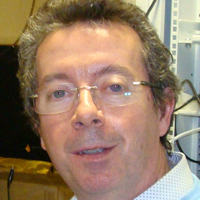 My research group has a longstanding interest in the molecular and cellular mechanisms of synaptic plasticity, and their contribution to cognitive processes such as learning and memory. Using electrophysiological, imaging and molecular techniques, we have made important contributions to identify the membrane trafficking machinery of the neuron that controls synaptic function by shuttling neurotransmitter receptors in and out of the synaptic membrane (Brown et al, Neuron 2005; Gerges et al, EMBOJ 2006; Correia et al, Nat Neurosci 2008), as well as the intracellular signaling cascades that control this process (Jurado et al, EMBOJ 2010; Arendt et al, Nat Neurosci 2010). We are also particularly interested in how these mechanisms are altered in human pathologies associated to cognitive disorders. Indeed, we have found that some of these signaling cascades are defective in Alzheimer’s disease (Knafo et al, Nat Neurosci 2016). We are now exploiting this molecular information, together with behavioral assays on mouse models, to develop potential therapeutic avenues for cognitive enhancement under physiological (Knafo et al, PLoS Biol 2012) and pathological (Knafo et al, Nat Neurosci 2016) conditions. As a whole, we are trying to understand how molecular mechanisms operating at the synapse contribute to brain function in health and disease.
My research group has a longstanding interest in the molecular and cellular mechanisms of synaptic plasticity, and their contribution to cognitive processes such as learning and memory. Using electrophysiological, imaging and molecular techniques, we have made important contributions to identify the membrane trafficking machinery of the neuron that controls synaptic function by shuttling neurotransmitter receptors in and out of the synaptic membrane (Brown et al, Neuron 2005; Gerges et al, EMBOJ 2006; Correia et al, Nat Neurosci 2008), as well as the intracellular signaling cascades that control this process (Jurado et al, EMBOJ 2010; Arendt et al, Nat Neurosci 2010). We are also particularly interested in how these mechanisms are altered in human pathologies associated to cognitive disorders. Indeed, we have found that some of these signaling cascades are defective in Alzheimer’s disease (Knafo et al, Nat Neurosci 2016). We are now exploiting this molecular information, together with behavioral assays on mouse models, to develop potential therapeutic avenues for cognitive enhancement under physiological (Knafo et al, PLoS Biol 2012) and pathological (Knafo et al, Nat Neurosci 2016) conditions. As a whole, we are trying to understand how molecular mechanisms operating at the synapse contribute to brain function in health and disease.
These studies have been funded by several international agencies, such as the National Institutes of Health (NIMH) and the Dana Foundation, and since my return to Spain, the Spanish Ministry for Science, the Carlos III Health Institute, Ramón Areces Foundation and the French Science Institute.
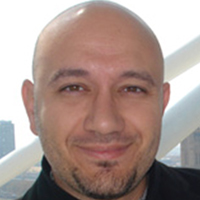 Dr. Kostas A. Fanti is the Director of the Developmental Psychopathology Lab (DPL) and Assistant Professor of Developmental Psychopathology at the University of Cyprus. He received his doctoral degree from Georgia State University with a focus on how biological and environmental risk factors predict the development of antisocial problems. He joined the Department of Psychology at the University of Cyprus in 2007. Since then he developed his research program focusing on how neurophysiological, genetic, and social factors can explain heterogeneity in antisocial behavior, collecting data from more than 20,000 individuals in Cyprus. He was the principal investigator on multiple grants investigating the development of child, adolescent and adult psychopathology, and he has published extensively in clinical, neuropsychological, biological, methodological and developmental journals. He is an ad hoc reviewer in multiple journals and he is a member of the editorial board of Social Development and the Journal of Psychopathology and Behavioral Assessment. He participates in various US, European and International organizations and scientific committees. Kostas received multiple awards, including three early career scientist awards and an excellence in statistics award. He has multiple international collaborations with research centers, such as the Donders Institute for Brain, Cognition, and Behaviour in the Netherlands and the Center for Criminological and Psychosocial research in Sweden.
Dr. Kostas A. Fanti is the Director of the Developmental Psychopathology Lab (DPL) and Assistant Professor of Developmental Psychopathology at the University of Cyprus. He received his doctoral degree from Georgia State University with a focus on how biological and environmental risk factors predict the development of antisocial problems. He joined the Department of Psychology at the University of Cyprus in 2007. Since then he developed his research program focusing on how neurophysiological, genetic, and social factors can explain heterogeneity in antisocial behavior, collecting data from more than 20,000 individuals in Cyprus. He was the principal investigator on multiple grants investigating the development of child, adolescent and adult psychopathology, and he has published extensively in clinical, neuropsychological, biological, methodological and developmental journals. He is an ad hoc reviewer in multiple journals and he is a member of the editorial board of Social Development and the Journal of Psychopathology and Behavioral Assessment. He participates in various US, European and International organizations and scientific committees. Kostas received multiple awards, including three early career scientist awards and an excellence in statistics award. He has multiple international collaborations with research centers, such as the Donders Institute for Brain, Cognition, and Behaviour in the Netherlands and the Center for Criminological and Psychosocial research in Sweden.
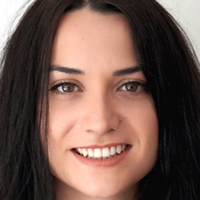 Claire Gillan’s lab at Trinity College Dublin (www.gillanlab.com) is interested in developing novel approaches to studying brain health in psychiatric populations. Funded by a fellowship from MQ, a key goal is to develop objective tests that can be used to predict who will respond to which treatment. Claire gained her PhD at the University of Cambridge in 2013 under the supervision of Trevor Robbins where she investigated the balance between habits and goal-directed control in obsessive-compulsive disorder (OCD). She stayed in Cambridge to complete a short postdoc funded by the Medical Research Council, before being awarded a Sir Henry Wellcome Postdoctoral Fellowship to work at New York University. At NYU, Claire worked on computational approaches to understanding psychiatry with Nathaniel Daw and Liz Phelps. Here, she carried out large scale web-based studies to reveal trans-diagnostic psychiatric traits that are linked to specific aspects of cognition. In 2015, Claire received the Junior Investigator Award from British Association for Psychopharmacology for her work on goal-directed learning in obsessive-compulsive disorder. Her research has garnered significant media attention, featuring in three BBC documentaries on mental health. Her publications have been covered in several other media outlets, including Scientific American, New Scientist and Aeon and in 2014, Claire was profiled on a list of the 30 Top Thinkers under 30 in Pacific Standard magazine.
Claire Gillan’s lab at Trinity College Dublin (www.gillanlab.com) is interested in developing novel approaches to studying brain health in psychiatric populations. Funded by a fellowship from MQ, a key goal is to develop objective tests that can be used to predict who will respond to which treatment. Claire gained her PhD at the University of Cambridge in 2013 under the supervision of Trevor Robbins where she investigated the balance between habits and goal-directed control in obsessive-compulsive disorder (OCD). She stayed in Cambridge to complete a short postdoc funded by the Medical Research Council, before being awarded a Sir Henry Wellcome Postdoctoral Fellowship to work at New York University. At NYU, Claire worked on computational approaches to understanding psychiatry with Nathaniel Daw and Liz Phelps. Here, she carried out large scale web-based studies to reveal trans-diagnostic psychiatric traits that are linked to specific aspects of cognition. In 2015, Claire received the Junior Investigator Award from British Association for Psychopharmacology for her work on goal-directed learning in obsessive-compulsive disorder. Her research has garnered significant media attention, featuring in three BBC documentaries on mental health. Her publications have been covered in several other media outlets, including Scientific American, New Scientist and Aeon and in 2014, Claire was profiled on a list of the 30 Top Thinkers under 30 in Pacific Standard magazine.
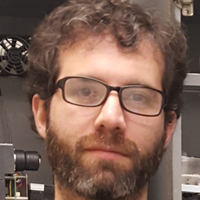 Dr. Sam A. Golden received his PhD from the Icahn School of Medicine in New York City, NY, USA for examining the role of the basil forebrain in stress and aggression-related disorders. Currently, Dr. Golden holds a dual National Institute of General Medical Sciences (NIGMS) PRAT and National Institute on Drug Abuse (NIDA) IRTA Postdoctoral Fellowship in the lab of Dr. Yavin Shaham at the National Institute of Health, Baltimore, MD, USA. His recent research contributions have centered on the development and application of preclinical aggression models, specifically examining the role of reward systems in modulating the motivational component of aggressive behavior. This approach has revealed that in some rodents, like addictive drugs, aggression can be highly rewarding and compulsively pursued despite immediate or long-term adverse consequences, and sought anew after lengthy enforced abstinence. The general commonality of aggression seeking between rodents and humans, and more importantly the shared vulnerability for compulsive addiction-like aggression seeking within a smaller subpopulation in each species, may reflect a biologically conserved correlate of compulsive aggression seeking across species. Dr. Golden’s observations suggest that some types of aggression, such as appetitive aggression, can be viewed within the context of addiction, and that neurobiological and behavioral tools for the study of compulsive drug seeking and relapse should be used to study brain mechanisms of this type of aggression, both preclinically and clinically.
Dr. Sam A. Golden received his PhD from the Icahn School of Medicine in New York City, NY, USA for examining the role of the basil forebrain in stress and aggression-related disorders. Currently, Dr. Golden holds a dual National Institute of General Medical Sciences (NIGMS) PRAT and National Institute on Drug Abuse (NIDA) IRTA Postdoctoral Fellowship in the lab of Dr. Yavin Shaham at the National Institute of Health, Baltimore, MD, USA. His recent research contributions have centered on the development and application of preclinical aggression models, specifically examining the role of reward systems in modulating the motivational component of aggressive behavior. This approach has revealed that in some rodents, like addictive drugs, aggression can be highly rewarding and compulsively pursued despite immediate or long-term adverse consequences, and sought anew after lengthy enforced abstinence. The general commonality of aggression seeking between rodents and humans, and more importantly the shared vulnerability for compulsive addiction-like aggression seeking within a smaller subpopulation in each species, may reflect a biologically conserved correlate of compulsive aggression seeking across species. Dr. Golden’s observations suggest that some types of aggression, such as appetitive aggression, can be viewed within the context of addiction, and that neurobiological and behavioral tools for the study of compulsive drug seeking and relapse should be used to study brain mechanisms of this type of aggression, both preclinically and clinically.
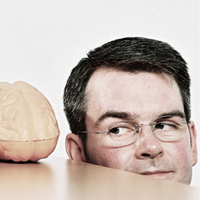 Claus C. Hilgetag studied Biophysics in Berlin, Germany and Neuroscience in Edinburgh, Oxford and Newcastle, UK. He is a Professor at the University Medical Center Eppendorf, Hamburg University, Germany, where he directs the Institute of Computational Neuroscience. He also holds an Adjunct Associate Professorship at the Department of Health Sciences, Boston University, USA.
Claus C. Hilgetag studied Biophysics in Berlin, Germany and Neuroscience in Edinburgh, Oxford and Newcastle, UK. He is a Professor at the University Medical Center Eppendorf, Hamburg University, Germany, where he directs the Institute of Computational Neuroscience. He also holds an Adjunct Associate Professorship at the Department of Health Sciences, Boston University, USA.
The main goal of research in the Hilgetag group is to understand the organization and dynamics of complex brain connectivity as the basis of cognitive brain function. The work focuses in particular on the structural and functional organization of the cerebral cortex at the mesoscopic scale. Insights are derived from multivariate analyses of brain architecture and connections, as well as computational modeling of the relationships between structural and functional brain networks.
The theoretical investigations are complemented by experimental work to identify functional contributions and interactions of different brain regions underlying cognitive functions, using ‘virtual lesion’ approaches, such as transcranial magnetic stimulation. These studies particularly focus on the adaptive function of human brain networks for visual attention, with implications for understanding intact function as well as recovery after brain injury.
 Clive Holmes is currently Professor in Biological Psychiatry at the University of Southampton, UK, and co-director of the Memory Assessment and Research Centre, Southampton. He trained in Psychiatry at Guy’s Hospital and the Institute of Psychiatry, London, UK. Following a two year visiting research fellowship studying the neurochemistry of Alzheimer’s disease at the Institute of Neurology, London, he went on to gain a PhD in the genetics of the neuropsychiatric features of Alzheimer’s disease from the Institute of Psychiatry, London. Professor Holmes has a wide range of research interests in the biological factors that alter the clinical course of Alzheimer’s disease and other related chronic neurodegenerative conditions but with a focus on the role of inflammation. This includes a better understanding of the biological factors (e.g. genetics, cortisol, cytokines) that influence the rate of cognitive decline in Alzheimer’s Disease and the development of both Mild Cognitive Impairment and Alzheimer’s Disease. He has been involved in a number of clinical trials of immunological and anti-inflammatory agents aimed at altering disease progression. He is still active clinically and is an honorary consultant in Old Age Psychiatry at Southern Health Foundation Trust.
Clive Holmes is currently Professor in Biological Psychiatry at the University of Southampton, UK, and co-director of the Memory Assessment and Research Centre, Southampton. He trained in Psychiatry at Guy’s Hospital and the Institute of Psychiatry, London, UK. Following a two year visiting research fellowship studying the neurochemistry of Alzheimer’s disease at the Institute of Neurology, London, he went on to gain a PhD in the genetics of the neuropsychiatric features of Alzheimer’s disease from the Institute of Psychiatry, London. Professor Holmes has a wide range of research interests in the biological factors that alter the clinical course of Alzheimer’s disease and other related chronic neurodegenerative conditions but with a focus on the role of inflammation. This includes a better understanding of the biological factors (e.g. genetics, cortisol, cytokines) that influence the rate of cognitive decline in Alzheimer’s Disease and the development of both Mild Cognitive Impairment and Alzheimer’s Disease. He has been involved in a number of clinical trials of immunological and anti-inflammatory agents aimed at altering disease progression. He is still active clinically and is an honorary consultant in Old Age Psychiatry at Southern Health Foundation Trust.
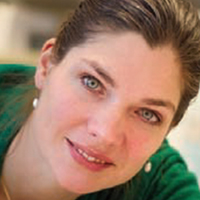 Henne Holstege is Assistant Professor at the Department of Clinical Genetics of the VU University Medical Center. She has majored in Biochemistry at the University of Leiden. During her PhD at the Netherlands Cancer Institute in Amsterdam she compared the genetic changes characteristic for mouse and human breast tumors. Then, inspired by the extraordinary case of Mrs. van Andel-Schipper, who reached the age of 115 without any signs of cognitive decline, her research interest changed to the genetics and derivative molecular profiles that explain extreme aging without cognitive decline.
In 2013 she set up the 100-plus Study cohort of cognitively healthy centenarians (CHCs) at the VUmc Alzheimer center Amsterdam. The study aims to include at least 500 CHCs, and currently the cohort includes family and medical history, neuropsychological data, blood samples and DNA samples from 300 CHCs. Thus far 90 CHCs agreed to post-mortem brain donation.
Henne Holstege is Assistant Professor at the Department of Clinical Genetics of the VU University Medical Center. She has majored in Biochemistry at the University of Leiden. During her PhD at the Netherlands Cancer Institute in Amsterdam she compared the genetic changes characteristic for mouse and human breast tumors. Then, inspired by the extraordinary case of Mrs. van Andel-Schipper, who reached the age of 115 without any signs of cognitive decline, her research interest changed to the genetics and derivative molecular profiles that explain extreme aging without cognitive decline.
In 2013 she set up the 100-plus Study cohort of cognitively healthy centenarians (CHCs) at the VUmc Alzheimer center Amsterdam. The study aims to include at least 500 CHCs, and currently the cohort includes family and medical history, neuropsychological data, blood samples and DNA samples from 300 CHCs. Thus far 90 CHCs agreed to post-mortem brain donation.
Longevity analysis of CHC-siblings suggests the presence of a strong heritable component to extreme aging with maintained cognitive health. It is Henne’s view that the associated genetic elements and derivative molecular processes can be only identified when centenarians are profiled in context of aging and disease, and on all levels of cellular regulation. To reach her goal, Henne has brought together different expertise by setting up close collaborations with many researchers inside and outside the Netherlands.
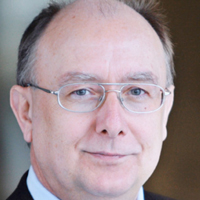 Prof Wieland Huttner studied medicine in Hamburg and Oxford before obtaining his MD from Hamburg University in 1976. His previous positions have included – post-doctorate at the Max Planck Institute for Experimental Medicine and at Yale University, head of a junior research group at the Max Planck Institute of Psychiatry in Munich, German Habilitation in physiological chemistry Würzburg University (1985), group head at European Molecular Biology Laboratory Heidelberg, full Professor and Head of the Institute for Neurobiology Heidelberg University (1991).
Prof Wieland Huttner studied medicine in Hamburg and Oxford before obtaining his MD from Hamburg University in 1976. His previous positions have included – post-doctorate at the Max Planck Institute for Experimental Medicine and at Yale University, head of a junior research group at the Max Planck Institute of Psychiatry in Munich, German Habilitation in physiological chemistry Würzburg University (1985), group head at European Molecular Biology Laboratory Heidelberg, full Professor and Head of the Institute for Neurobiology Heidelberg University (1991).
He is one of the Founding Directors and currently the Managing Director of the Max Planck Institute of Molecular Cell Biology and Genetics in Dresden (since 1998), a Honorary Professor for Neurobiology at the Technische Universität Dresden and has been the Chair of the Scientific Council of the Max Planck Society from 2009 to 2012.
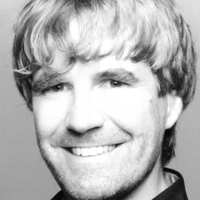 Prof. Dr. Tobias Kalenscher holds a diploma in psychology. He received a PhD in Cognitive Neuroscience from the Ruhr-University Bochum in 2005 followed by a post-doc and independent researcher position in systems biology at the University of Amsterdam, the Netherlands. He was appointed professor of comparative psychology in Düsseldorf in 2011. He works on the interface of psychology, neuroscience and economics. His main interest is to understand the psychology and neurobiology of decision-making in general, and deviations from optimal decision-making in particular. Combining in vivo electrophysiology, psychopharmacology, microdialysis and neuroimaging techniques with conceptual tools borrowed from psychology, economics, and biology, he employs a multidisciplinary, comparative approach.
Prof. Dr. Tobias Kalenscher holds a diploma in psychology. He received a PhD in Cognitive Neuroscience from the Ruhr-University Bochum in 2005 followed by a post-doc and independent researcher position in systems biology at the University of Amsterdam, the Netherlands. He was appointed professor of comparative psychology in Düsseldorf in 2011. He works on the interface of psychology, neuroscience and economics. His main interest is to understand the psychology and neurobiology of decision-making in general, and deviations from optimal decision-making in particular. Combining in vivo electrophysiology, psychopharmacology, microdialysis and neuroimaging techniques with conceptual tools borrowed from psychology, economics, and biology, he employs a multidisciplinary, comparative approach.
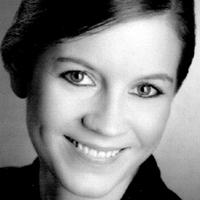 Sabine Krabbe is a postdoctoral fellow in the laboratory of Andreas Lüthi at the Friedrich Miescher Institute for Biomedical Research in Basel, Switzerland. She studied Human Biology at the University of Marburg and received her PhD in Neurophysiology in 2012 for her work on dopaminergic dysregulation in schizophrenia in a collaborative project of the University of Frankfurt and Columbia University New York. Supported by a NARSAD Young Investigator Award, her current postdoctoral research focuses on the dissection of amygdala microcircuits in fear and anxiety using a combination of in vivo imaging, electrophysiology and optogenetic methods.
Sabine Krabbe is a postdoctoral fellow in the laboratory of Andreas Lüthi at the Friedrich Miescher Institute for Biomedical Research in Basel, Switzerland. She studied Human Biology at the University of Marburg and received her PhD in Neurophysiology in 2012 for her work on dopaminergic dysregulation in schizophrenia in a collaborative project of the University of Frankfurt and Columbia University New York. Supported by a NARSAD Young Investigator Award, her current postdoctoral research focuses on the dissection of amygdala microcircuits in fear and anxiety using a combination of in vivo imaging, electrophysiology and optogenetic methods.
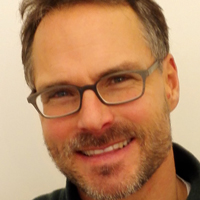 Matthias Liechti is a professor for clinical pharmacology and internal medicine the University Hospital Basel. With his psychopharmacology research group at the Departments of Biomedicine and Clinical Research, Matthias Liechti investigates the pharmacology of psychoactive substances both in vitro and in humans. The group is best known for the work on the acute effects of MDMA (ecstasy) and LSD in humans. The team characterizes the pharmacology of the constantly emerging novel psychoactive substances (designer drugs) using in vitro methods. In experimental clinical studies Matthias Liechti described the acute effects of MDMA, LSD, and psychostimulants (methylphenidate, d-amphetamine, neuroenhancers) on social cognition (mood recognition, empathy, prosocial behaviour, sexual arousal). The team also conducts Pharmaco-fMRI studies in collaboration with the Department of Psychiatry.
Matthias Liechti is a professor for clinical pharmacology and internal medicine the University Hospital Basel. With his psychopharmacology research group at the Departments of Biomedicine and Clinical Research, Matthias Liechti investigates the pharmacology of psychoactive substances both in vitro and in humans. The group is best known for the work on the acute effects of MDMA (ecstasy) and LSD in humans. The team characterizes the pharmacology of the constantly emerging novel psychoactive substances (designer drugs) using in vitro methods. In experimental clinical studies Matthias Liechti described the acute effects of MDMA, LSD, and psychostimulants (methylphenidate, d-amphetamine, neuroenhancers) on social cognition (mood recognition, empathy, prosocial behaviour, sexual arousal). The team also conducts Pharmaco-fMRI studies in collaboration with the Department of Psychiatry.
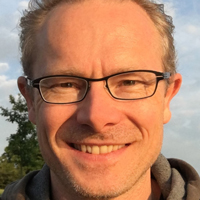 Klaus Linkenkaer-Hansen is Associate Professor at Vrije Universiteit Amsterdam. He received his MSc in Physics-biophysics from the Niels Bohr Institute (Denmark) in 1998, and his PhD from Helsinki University of Technology (Finland) in 2002. Following post-doctoral fellowships at the Netherlands Institute for Neuroscience and Center for Neurogenomics and Cognitive Research, he became group leader of “Neuronal Oscillations and Cognition” in 2008. In 2015, he founded NBT Analytics (http://www.nbt-analytics.com/) to promote the use of advanced EEG analysis in clinical trials. His research is focused on the complex dynamics of neuronal oscillations and its implications for cognition in health and disease. Theories and methods from the physics of self-organization and complexity have guided his multi-disciplinary research since 1998. His research has shown that the complex temporal structure of ongoing oscillations is rich in information about the functional state and structure of the underlying neuronal networks.
Klaus Linkenkaer-Hansen is Associate Professor at Vrije Universiteit Amsterdam. He received his MSc in Physics-biophysics from the Niels Bohr Institute (Denmark) in 1998, and his PhD from Helsinki University of Technology (Finland) in 2002. Following post-doctoral fellowships at the Netherlands Institute for Neuroscience and Center for Neurogenomics and Cognitive Research, he became group leader of “Neuronal Oscillations and Cognition” in 2008. In 2015, he founded NBT Analytics (http://www.nbt-analytics.com/) to promote the use of advanced EEG analysis in clinical trials. His research is focused on the complex dynamics of neuronal oscillations and its implications for cognition in health and disease. Theories and methods from the physics of self-organization and complexity have guided his multi-disciplinary research since 1998. His research has shown that the complex temporal structure of ongoing oscillations is rich in information about the functional state and structure of the underlying neuronal networks.
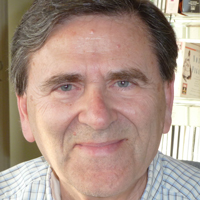 F.H. Lopes da Silva received his M.D. from the University of Lisbon and the Ph.D. degree from the University of Utrecht and joined the Brain Research Dept of the Institute of Medical Physics (TNO in Utrecht). Was visiting Professor Neurophysiology (from 1975 to 1985) at Twente University (program Bio-Medical Engineering). Was appointed full professor General Physiology at the Faculty of Sciences at the University of Amsterdam in 1980 (since 2000 he is Emeritus Professor). From 1995 to 2002, was Scientific Director of the Institute of Epilepsy (Heemstede). Since 2005 he is part-time Professor at the “Instituto Superior Técnico” of the University of Lisbon. In 1985, he was elected member of the Netherlands Royal Academy of Arts and Sciences. He received degrees of Doctor Honoris Causa (Universities of Lisbon, Porto, Helsinki, Rennes I), the Herbert H. Jasper Award of the American Clinical Neurophysiology Society, the degree of grand-officer of the Order of Santiago da Espada of Portugal, and the degree of knight of the order of the “Nederlandse Leeuw”.
F.H. Lopes da Silva received his M.D. from the University of Lisbon and the Ph.D. degree from the University of Utrecht and joined the Brain Research Dept of the Institute of Medical Physics (TNO in Utrecht). Was visiting Professor Neurophysiology (from 1975 to 1985) at Twente University (program Bio-Medical Engineering). Was appointed full professor General Physiology at the Faculty of Sciences at the University of Amsterdam in 1980 (since 2000 he is Emeritus Professor). From 1995 to 2002, was Scientific Director of the Institute of Epilepsy (Heemstede). Since 2005 he is part-time Professor at the “Instituto Superior Técnico” of the University of Lisbon. In 1985, he was elected member of the Netherlands Royal Academy of Arts and Sciences. He received degrees of Doctor Honoris Causa (Universities of Lisbon, Porto, Helsinki, Rennes I), the Herbert H. Jasper Award of the American Clinical Neurophysiology Society, the degree of grand-officer of the Order of Santiago da Espada of Portugal, and the degree of knight of the order of the “Nederlandse Leeuw”.
His research interests are mainly the study of the electrophysiology and biophysics of brain systems, in particular the origin and organization of rhythmic activities of the brain, and the origin of epileptic phenomena especially of absence seizures.
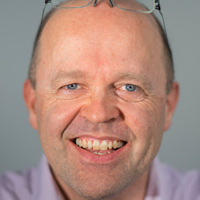 Christian Lüscher is a professor of Neuroscience at the University of Geneva and an attending in Neurology at the University Hospital of Geneva.
Christian Lüscher is a professor of Neuroscience at the University of Geneva and an attending in Neurology at the University Hospital of Geneva.
He obtained his medical degree from the Universities of Lausanne and Berne. After a residency in Neurology he spent three years at UC San Francisco to study synaptic plasticity. He established his own laboratory at the University of Geneva in 1999 after a career award of the Swiss NSF and became full professor in 2009.
The Lüscher lab studies the synaptic mechanisms that underlie the behavioral adaptations in drug addiction. Over the last 15 years he has characterized several forms of “drug-evoked synaptic plasticity” and established links of causalities to addiction symptoms in rodent models. The lab was the first to show that normalizing synaptic transmission in vivo with optogenetic approaches can erase pathological behavior. The group is currently working towards translational protocols to emulate optogenetic protocols with deep brain stimulation.
Christian Lüscher has received several awards, including an ERC advanced grant, the Bing, Cloëtta, Ott and Koetzer Prize.
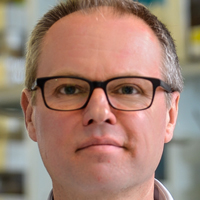 Gero Miesenböck is Waynflete Professor of Physiology and founding Director of the Centre for Neural Circuits and Behaviour at the University of Oxford. Before coming to Oxford in 2007, he held faculty appointments at Memorial Sloan-Kettering Cancer Center and Yale University.
Gero Miesenböck is Waynflete Professor of Physiology and founding Director of the Centre for Neural Circuits and Behaviour at the University of Oxford. Before coming to Oxford in 2007, he held faculty appointments at Memorial Sloan-Kettering Cancer Center and Yale University.
Miesenböck has received many awards for the invention of optogenetics, including the InBev-Baillet Latour International Health Prize 2012, the Brain Prize 2013, the Heinrich Wieland Prize 2015, the BBVA Foundation Frontiers of Knowledge Award 2015, and the Massry Prize 2016. He is a member of the Austrian and German Academies of Sciences and a Fellow of the Royal Society.
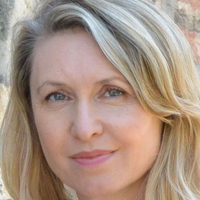 Gorica Petrovich is an associate professor with tenure in the Department of Psychology at Boston College. Her research investigates the brain mechanisms underlying the control of feeding behavior; specifically how environmental cues through cognitive processes drive the motivation to eat, independently from physiological hunger. Her training and expertise are in systems neuroanatomy, learning and memory, and behavioral neuroscience. She received a B.S. degree from the School of Natural Sciences and Mathematics at the University of Belgrade in 1989. She earned her doctorate in Neurobiology from the University of Southern California in 1997, under the mentorship of Larry Swanson. Her Ph.D. thesis work defined neuroanatomical connections of the amygdala and associated brain network critical for emotion and motivation. During her postdoctoral fellowship, under the guidance of Michela Gallagher in the Department of Psychological and Brain Sciences at the Johns Hopkins University, she began to examine environmental contribution to the control of feeding and the underlying brain substrates in rodent models. Her current work utilizes cutting-edge chemogenetic methods to determine neural network plasticity mechanisms underlying cognitive food motivation. This work in animals is relevant for our understanding the control of appetite and eating in humans and maladaptive environmental influences that lead to eating disorders. NIMH and NIDDK have funded her past and current research.
Gorica Petrovich is an associate professor with tenure in the Department of Psychology at Boston College. Her research investigates the brain mechanisms underlying the control of feeding behavior; specifically how environmental cues through cognitive processes drive the motivation to eat, independently from physiological hunger. Her training and expertise are in systems neuroanatomy, learning and memory, and behavioral neuroscience. She received a B.S. degree from the School of Natural Sciences and Mathematics at the University of Belgrade in 1989. She earned her doctorate in Neurobiology from the University of Southern California in 1997, under the mentorship of Larry Swanson. Her Ph.D. thesis work defined neuroanatomical connections of the amygdala and associated brain network critical for emotion and motivation. During her postdoctoral fellowship, under the guidance of Michela Gallagher in the Department of Psychological and Brain Sciences at the Johns Hopkins University, she began to examine environmental contribution to the control of feeding and the underlying brain substrates in rodent models. Her current work utilizes cutting-edge chemogenetic methods to determine neural network plasticity mechanisms underlying cognitive food motivation. This work in animals is relevant for our understanding the control of appetite and eating in humans and maladaptive environmental influences that lead to eating disorders. NIMH and NIDDK have funded her past and current research.
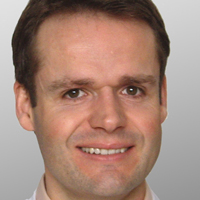 Harald Prüss is group leader at the German Center for Neurodegenerative Diseases (DZNE) Berlin and consultant Neurologist at the Charité University Medicine Berlin. He studied medicine at the Charité Berlin, trained the final year of clinical rotations in Switzerland, United States and Great Britain, and completed his MD thesis at the Department of Molecular Neuroanatomy of the Charité (Summa cum laude, Humboldt Award). From 2004 to 2010 he was a postdoctoral fellow at the Department of Experimental Neurology as well as a resident in Neurology at the Department of Neurology at Charité. From 2010 to 2011 he was a research fellow of the German Academic Exchange Service (DAAD) in the Department of Immunology/Pathology at Harvard Medical School in Boston. After receiving his Habilitation (venia legendi) in 2011 he became group leader at the Department of Experimental Neurology Charité Berlin. He completed his board certification in Neurology. He joined the DZNE in August 2013 as group leader of the Autoimmune Encephalopathies Group at DZNE Berlin. In close collaboration with the Department of Neurology he supervises the Charité memory clinic and the outpatient service for Paraneoplastic Neurological Disorders and Autoimmune Encephalitis. His group is active in the field of cellular and molecular neuroscience with the following major areas: autoimmune contribution to neurological disorders, animal models of antibody-mediated CNS diseases, synaptic changes caused by pathogenic auto-antibodies and nervous system–immune system ‘crosstalk’.
Harald Prüss is group leader at the German Center for Neurodegenerative Diseases (DZNE) Berlin and consultant Neurologist at the Charité University Medicine Berlin. He studied medicine at the Charité Berlin, trained the final year of clinical rotations in Switzerland, United States and Great Britain, and completed his MD thesis at the Department of Molecular Neuroanatomy of the Charité (Summa cum laude, Humboldt Award). From 2004 to 2010 he was a postdoctoral fellow at the Department of Experimental Neurology as well as a resident in Neurology at the Department of Neurology at Charité. From 2010 to 2011 he was a research fellow of the German Academic Exchange Service (DAAD) in the Department of Immunology/Pathology at Harvard Medical School in Boston. After receiving his Habilitation (venia legendi) in 2011 he became group leader at the Department of Experimental Neurology Charité Berlin. He completed his board certification in Neurology. He joined the DZNE in August 2013 as group leader of the Autoimmune Encephalopathies Group at DZNE Berlin. In close collaboration with the Department of Neurology he supervises the Charité memory clinic and the outpatient service for Paraneoplastic Neurological Disorders and Autoimmune Encephalitis. His group is active in the field of cellular and molecular neuroscience with the following major areas: autoimmune contribution to neurological disorders, animal models of antibody-mediated CNS diseases, synaptic changes caused by pathogenic auto-antibodies and nervous system–immune system ‘crosstalk’.
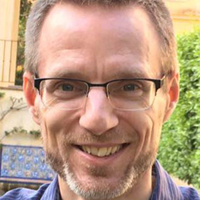 Frank A.J.L. Scheer, PhD is an Associate Professor of Medicine at Harvard Medical School (HMS) and the Director of the Medical Chronobiology Program at Brigham and Women’s Hospital (BWH), Boston. Dr. Scheer’s work focuses on influences of the endogenous circadian system and its disruption—such as with shift work—on cardiovascular, pulmonary, and metabolic regulation and disease states, such as hypertension, asthma, obesity and diabetes. Since 2005, Dr. Scheer has been funded continuously as Principal Investigator by the National Institutes of Health (NIH). Dr. Scheer has received numerous scientific awards, including the Young Investigator Award by the American Academy of Sleep Medicine, the First Place Clinical Research Young Investigator Award from the National Sleep Foundation/Sleep Research Society (combined), and the Neal Miller Award by the Academy of Behavioral Medicine Research. He is an Editorial Board Member of several peer-reviewed journals, including the Neurobiology of Sleep and Circadian Rhythms, the World Journal of Diabetes, and the American Journal of Cardiovascular Disease. Dr. Scheer is a Board Member of the European Society of Biological Rhythms and Member of the Program Committee of the Associated Professional Sleep Societies.
Frank A.J.L. Scheer, PhD is an Associate Professor of Medicine at Harvard Medical School (HMS) and the Director of the Medical Chronobiology Program at Brigham and Women’s Hospital (BWH), Boston. Dr. Scheer’s work focuses on influences of the endogenous circadian system and its disruption—such as with shift work—on cardiovascular, pulmonary, and metabolic regulation and disease states, such as hypertension, asthma, obesity and diabetes. Since 2005, Dr. Scheer has been funded continuously as Principal Investigator by the National Institutes of Health (NIH). Dr. Scheer has received numerous scientific awards, including the Young Investigator Award by the American Academy of Sleep Medicine, the First Place Clinical Research Young Investigator Award from the National Sleep Foundation/Sleep Research Society (combined), and the Neal Miller Award by the Academy of Behavioral Medicine Research. He is an Editorial Board Member of several peer-reviewed journals, including the Neurobiology of Sleep and Circadian Rhythms, the World Journal of Diabetes, and the American Journal of Cardiovascular Disease. Dr. Scheer is a Board Member of the European Society of Biological Rhythms and Member of the Program Committee of the Associated Professional Sleep Societies.
 Dr. Alicia K. Smith is an Associate Professor and Vice Chair for Research of Gynecology & Obstetrics at Emory University. She is also an Associate Professor of Psychiatry & Behavioral Sciences. She received her PhD in Molecular Genetics from Wake Forest University in 2005 and completed a postdoctoral fellowship in Genetic Epidemiology at the Centers for Disease Control and Prevention in 2007. Since then, she has built a research program focusing on genetic and epigenetic predictors of stress-related illnesses across the lifespan. Of particular interest to her research group is the role of prenatal and early life exposures in promoting childhood and adult psychopathology. Dr. Smith has authored dozens of peer-reviewed publications in journals including Nature, Molecular Psychiatry and PNAS. Her work is currently supported by grants from the National Institutes for Health (NIH), and she reviews grant applications for NIH, the Veterans Administration and other national and international groups. She is a recipient of an NIMH Career Development Award, Young Investigator Awards from the American Foundation for Suicide Prevention and the Brain and Behavior Research Foundation, as well as Travel Awards from the American College of Neuropsychopharmacology, Society of Biological Psychiatry and the Riken Brain Science Institute.
Dr. Alicia K. Smith is an Associate Professor and Vice Chair for Research of Gynecology & Obstetrics at Emory University. She is also an Associate Professor of Psychiatry & Behavioral Sciences. She received her PhD in Molecular Genetics from Wake Forest University in 2005 and completed a postdoctoral fellowship in Genetic Epidemiology at the Centers for Disease Control and Prevention in 2007. Since then, she has built a research program focusing on genetic and epigenetic predictors of stress-related illnesses across the lifespan. Of particular interest to her research group is the role of prenatal and early life exposures in promoting childhood and adult psychopathology. Dr. Smith has authored dozens of peer-reviewed publications in journals including Nature, Molecular Psychiatry and PNAS. Her work is currently supported by grants from the National Institutes for Health (NIH), and she reviews grant applications for NIH, the Veterans Administration and other national and international groups. She is a recipient of an NIMH Career Development Award, Young Investigator Awards from the American Foundation for Suicide Prevention and the Brain and Behavior Research Foundation, as well as Travel Awards from the American College of Neuropsychopharmacology, Society of Biological Psychiatry and the Riken Brain Science Institute.
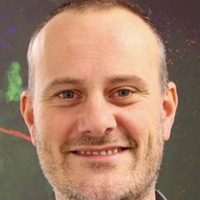 Patrik Verstreken obtained his degree in bio-engineering from the university of Brussels in 1998. He joined the Graduate school of Biomedical sciences at Baylor College of Medicine and under the mentorship of Hugo Bellen he obtained a PhD in Developmental Biology in 2003. After post doctoral training and with support of a Marie Curie Excellence grant he became a group leader at VIB and joined the faculty of the university of Leuven (KU Leuven) in 2007. Patrik obtained an ERC starting grant in 2011 and an ERC consolidator grant in 2015.
Patrik Verstreken obtained his degree in bio-engineering from the university of Brussels in 1998. He joined the Graduate school of Biomedical sciences at Baylor College of Medicine and under the mentorship of Hugo Bellen he obtained a PhD in Developmental Biology in 2003. After post doctoral training and with support of a Marie Curie Excellence grant he became a group leader at VIB and joined the faculty of the university of Leuven (KU Leuven) in 2007. Patrik obtained an ERC starting grant in 2011 and an ERC consolidator grant in 2015.
Patrik Verstreken has made contributions to our understanding of synaptic function in health and neurodegenerative disease. Using fruit flies and more recently also human neurons derived from embryonic stem cells, Patrik’s work has focused on key proteins, lipids and mitochondria that regulate synaptic activity and how these molecules and organelles are misregulated in Parkinson’s disease. Patrik’s work has led to the discovery of specific presynaptic and organellar defects in Parkinson’s disease and in strategies as to how these defects can be suppressed.
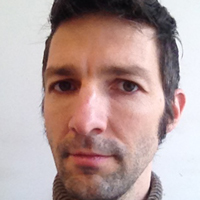 Bram Vervliet is currently Marie Skłodowska-Curie Research Fellow and Assistant Professor at the Laboratory of Biological Psychology, KU Leuven, Belgium. He obtained his PhD in 2004 at the Center for the Psychology of Learning and Experimental Psychopathology, at KU Leuven. He was Assistant Professor (2006 - 2010) at the Department of Clinical Psychology at the University of Amsterdam (prof. Merel Kindt), and visiting scholar (2010) at the Anxiety Disorders Research Center at UCLA (prof. Michelle Craske). He returned to KU Leuven as senior scientist (2010 - 2016) at the Center for Excellence on Generalization in Health and Psychopathology (prof. Dirk Hermans). Within his Marie Skłodowska-Curie Research Fellowship, he was visiting scholar (2015-2017) at Harvard Medical School, Boston, at the Laboratory for Behavioral Neuroscience (prof. Mohammed Milad). His work focuses on the generalization, extinction and avoidance of fear conditioning in humans, and provides a translational bridge between the rodent cage and the therapy room.
Bram Vervliet is currently Marie Skłodowska-Curie Research Fellow and Assistant Professor at the Laboratory of Biological Psychology, KU Leuven, Belgium. He obtained his PhD in 2004 at the Center for the Psychology of Learning and Experimental Psychopathology, at KU Leuven. He was Assistant Professor (2006 - 2010) at the Department of Clinical Psychology at the University of Amsterdam (prof. Merel Kindt), and visiting scholar (2010) at the Anxiety Disorders Research Center at UCLA (prof. Michelle Craske). He returned to KU Leuven as senior scientist (2010 - 2016) at the Center for Excellence on Generalization in Health and Psychopathology (prof. Dirk Hermans). Within his Marie Skłodowska-Curie Research Fellowship, he was visiting scholar (2015-2017) at Harvard Medical School, Boston, at the Laboratory for Behavioral Neuroscience (prof. Mohammed Milad). His work focuses on the generalization, extinction and avoidance of fear conditioning in humans, and provides a translational bridge between the rodent cage and the therapy room.